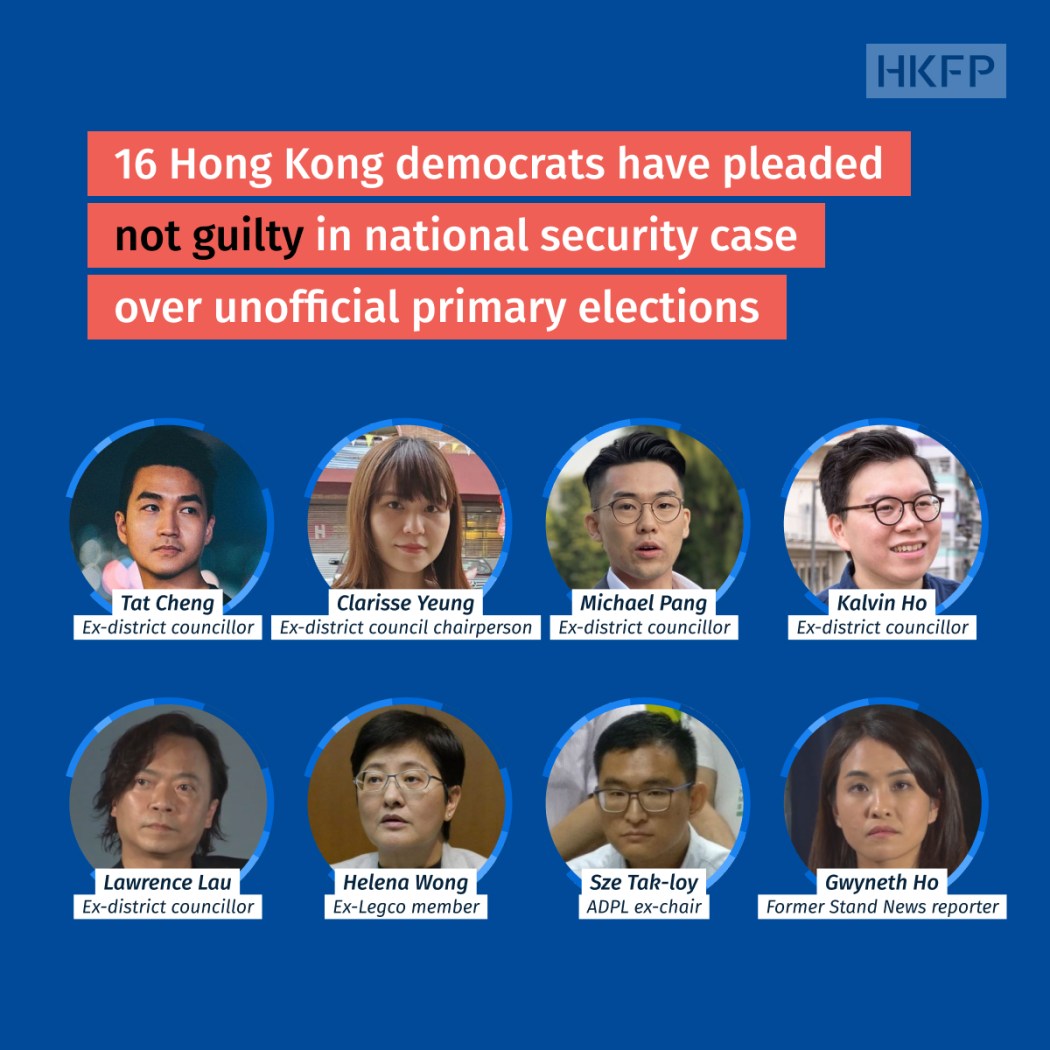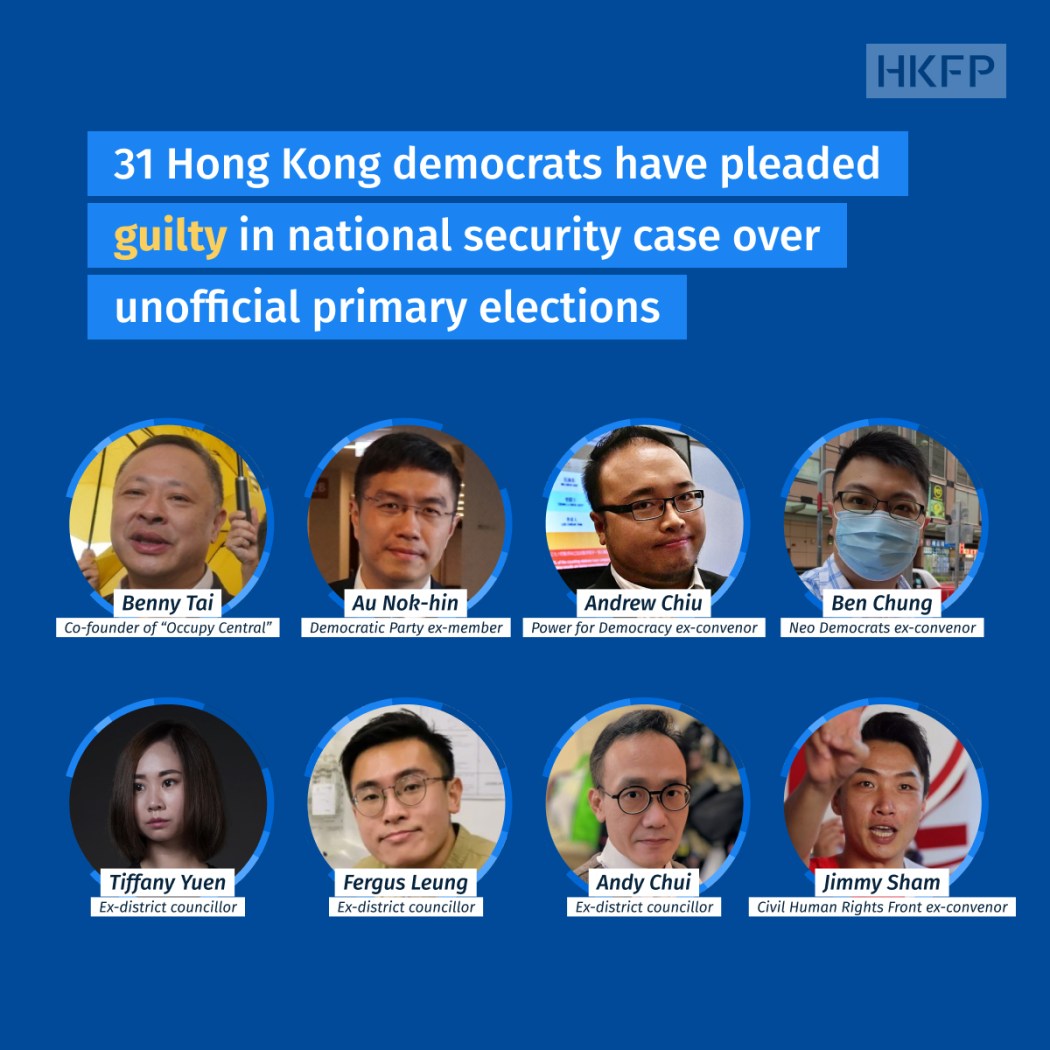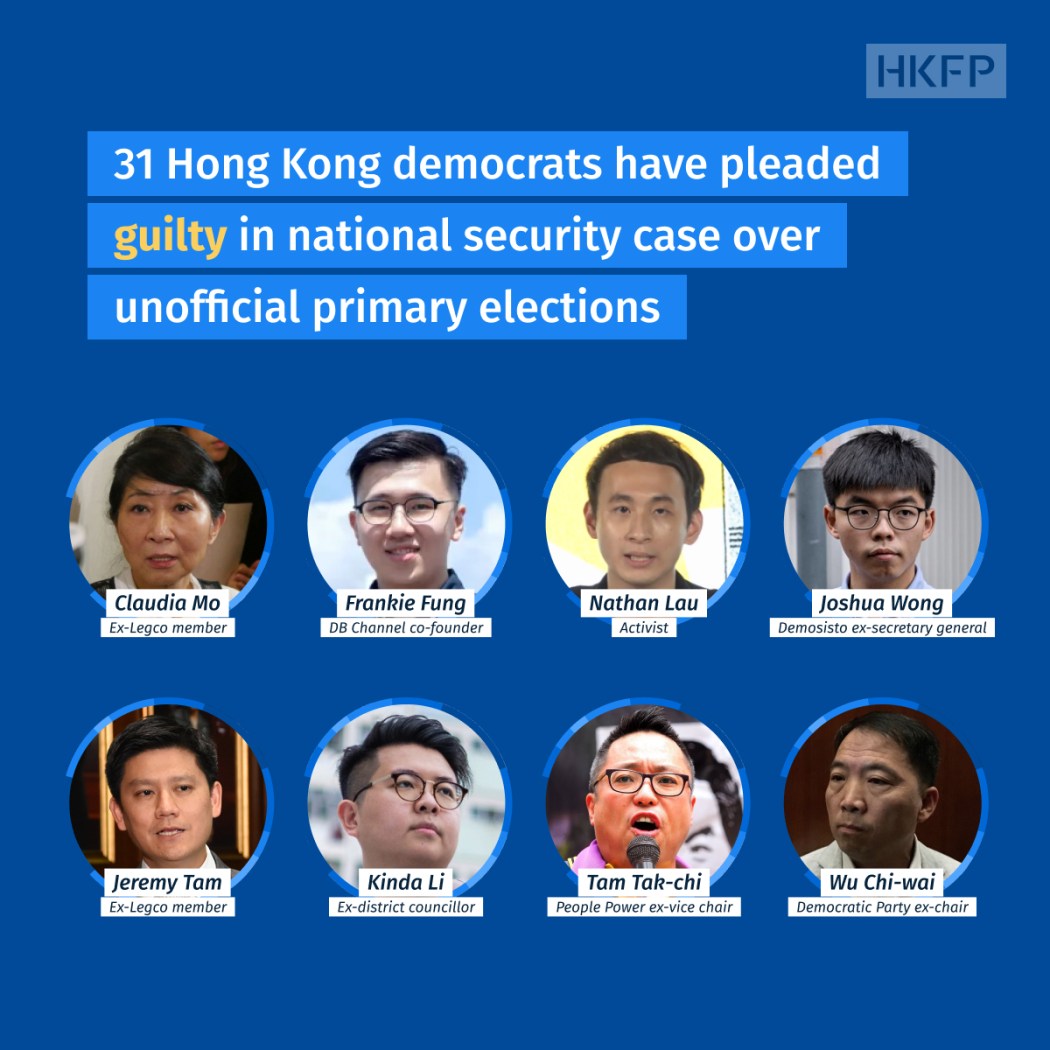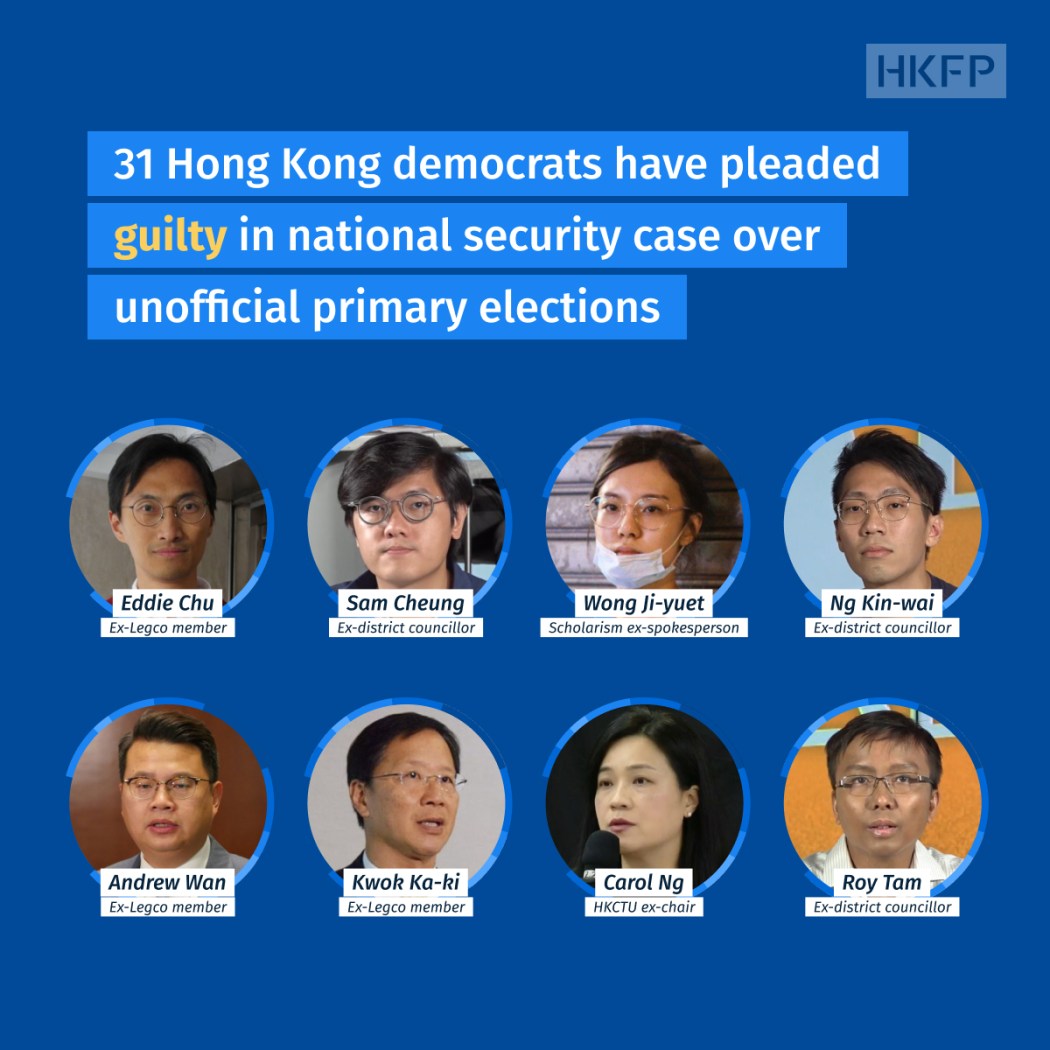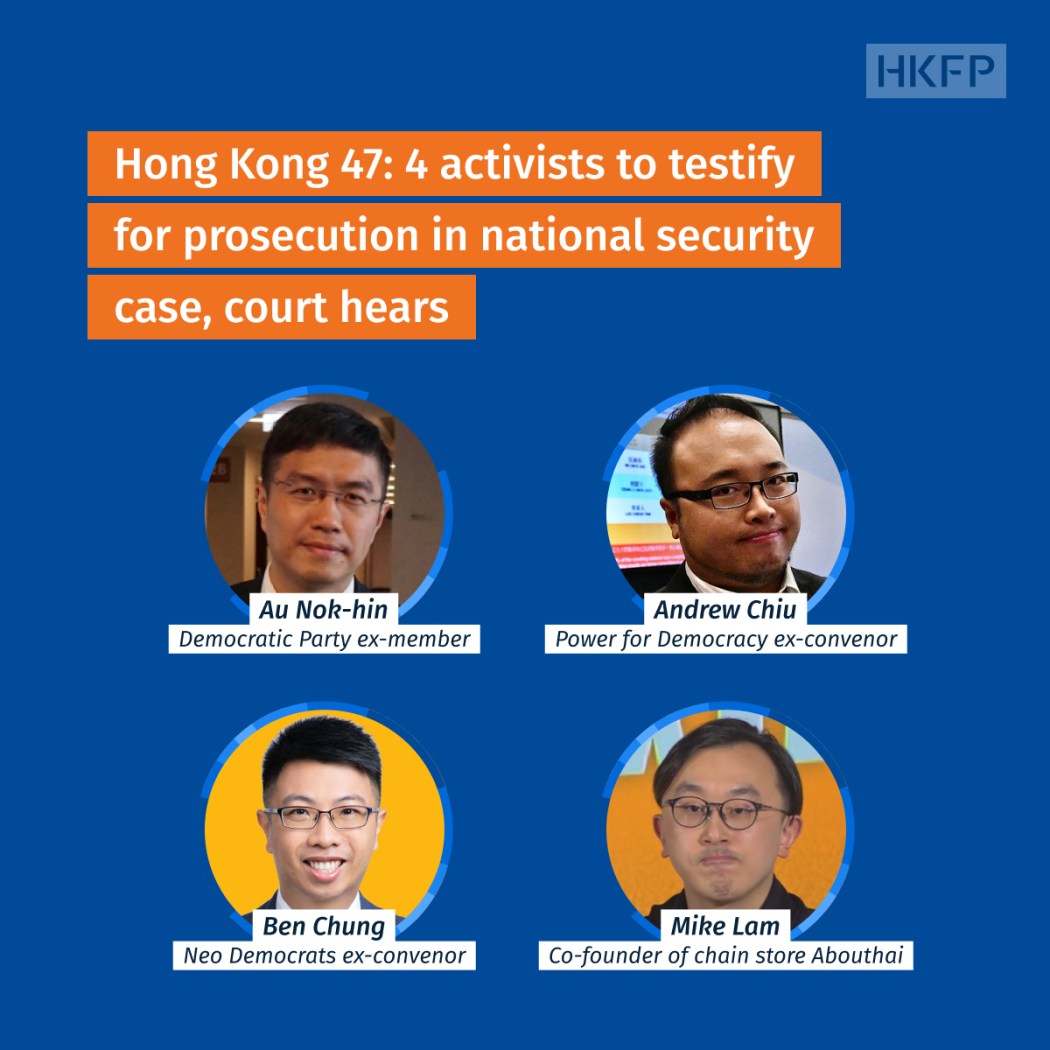A Hong Kong court has cast doubt on the admissibility of evidence presented by representatives of activist Gordon Ng, who is the first of 16 defendants to make his case in a landmark national security trial relating to 47 pro-democracy figures.

Three designated national security judges on Wednesday ordered the legal team of Ng, better known by his online pseudonym “Lee Bak Lou,” to prepare written submissions to justify why an email thread and an audio recording by a journalist should be admitted as evidence in the case concerning an alleged conspiracy to commit subversion.
The 44-year-old is facing trial alongside 15 former politicians and activists after pleading not guilty to the charge, which evolved around an unofficial legislative primary election held in July 2020. Together with 31 defendants who have pleaded guilty, they could face up to life in prison if convicted.
The primaries, which saw a turnout of more than 600,000, were said to have been part of a plan that would see elected democrats abuse their powers as lawmakers to indiscriminately veto government bills had the 2020 Legislative Council election not been delayed due to the Covid-19 pandemic.
The democrats were also accused of having intended to paralyse government operations, force the chief executive to dissolve the legislature, and ultimately force the city’s leader to step down.
Prosecutors argued that Ng played a key role in planning, organising and advancing the alleged conspiracy by initiating and promoting the Say No to Primary Dodgers campaign. They say he made online calls asking people not to cast their ballots to candidates who opposed or did not take part in the primary polls, as well as those who refused to comply with the results.
Admissibility of email chain questioned
On Wednesday, Ng’s lawyer Randy Shek confirmed with the judges that his client would not give testimony in court. He summoned three witnesses, including a solicitor and his clerk engaged by Ng, as well as a former journalist from shuttered pro-democracy tabloid Apple Daily to produce evidence which Shek said would paint “a complete picture of [Ng’s] state of mind” during the offence period.
The solicitor and his clerk testified that they had received instructions from Ng to take screenshots of an email exchange between an account named “Lee Bak Lou” and a person called “Anthony Yau.”
The relevance of the email chain was questioned by High Court judges Andrew Chan, Alex Lee and Johnny Chan. They said a conversation between Ng and other co-conspirators was not the same as a discussion with someone who was not related to the case.
Judge Lee went on to cast doubt on the admissibility of the emails, saying the court did not know if Anthony Yau even existed and the defence must also prove that Ng was the user and owner of the “Lee Bak Lou” email account.
The panel asked both the clerk and the solicitor if they had personal knowledge that Ng was the holder of the email account. Both witnesses said no.

Shek said the emails would be admissible under the common law doctrine of res gestae, which allows statements made outside of court to be admitted if they are closely associated with a particular event.
“I have great doubt whether it is applicable,” Lee said.
Apple Daily interview
A former Apple Daily reporter was called to the stand to produce a 27-minute audio recording taken when he and his friend interviewed Ng in June 2020.
During the interview, Ng said the voting campaign he advocated was meant to unite candidates from the pro-democracy camp and help them win majority control of the legislature, which had 70 seats before a major electoral overhaul in 2021. He wanted to promote such a voting strategy because a lot of candidates within the camp were “unwilling” to cooperate with one another, Ng said.
The admissibility of the interview was questioned by the court, with judge Lee saying that it would be considered hearsay. Unless Shek could show that the interview contained parts that may exonerate Ng and parts that could be used against him, the interview would not accepted as evidence, the judge said.
“If the interview is a totally exculpatory statement… I can’t see why this statement is admissible,” Lee said.

The court adjourned the trial to Thursday morning for Shek to justify the admissibility of the email chain and the interview.
Wednesday marked day 66 of the lengthy trial, which began on February 6. The court reserved 39 days for the 16 defendants to argue against the charge, meaning it may exceed the original estimated trial duration of 90 days.
Many defendants have been detained for more than two years since the case was first brought to court in March 2021.
In June 2020, Beijing inserted national security legislation directly into Hong Kong’s mini-constitution – bypassing the local legislature – following a year of pro-democracy protests and unrest. It criminalised subversion, secession, collusion with foreign forces and terrorist acts, which were broadly defined to include disruption to transport and other infrastructure. The move gave police sweeping new powers, alarming democrats, civil society groups and trade partners, as such laws have been used broadly to silence and punish dissidents in China. However, the authorities say it has restored stability and peace to the city.
Support HKFP | Policies & Ethics | Error/typo? | Contact Us | Newsletter | Transparency & Annual Report | Apps
Help safeguard press freedom & keep HKFP free for all readers by supporting our team


